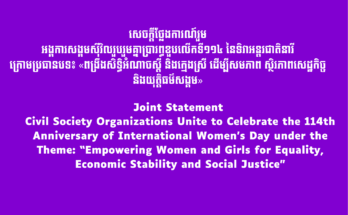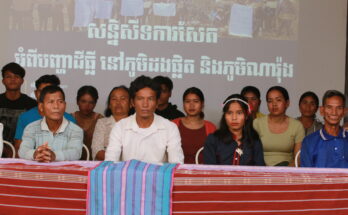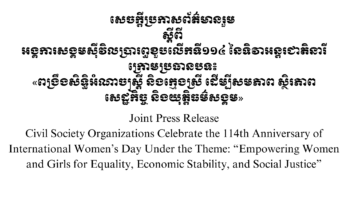New WCRO Report Examines Investigative Management, Strategies, and Techniques of the International Criminal Court’s Office of the Prosecutor
Washington, DC November 8, 2012 —The War Crimes Research Office (WCRO) recently launched a new report on the International Criminal Court (ICC), entitled Investigative Management, Strategies, and Techniques of the International Criminal Court’s Office of the Prosecutor.
At the time of this writing, just over ten years after the Rome Statute governing the ICC entered into force, the Court had issued warrants of arrest or summonses to appear against twenty-nine individuals. To date, fourteen of these individuals have appeared before the Court for purposes of participating in a hearing before a Pre-Trial Chamber to determine whether the Prosecution’s charges should be confirmed and the case should be sent to trial. While the Pre-Trial Chambers have confirmed charges against the majority of individuals appearing before them thus far, they have declined to confirm the charges against four suspects, meaning that the Prosecution has failed to establish that there are “substantial grounds to believe” the charges against nearly one-third of its suspects. Furthermore, even in those cases that do survive the confirmation hearing and proceed to trial, charges have occasionally been dropped by the Pre-Trial Chamber due to an insufficiency of evidence. Finally, the first case to actually go to trial before the Court involved limited charges that were widely perceived as not fully reflecting the criminal conduct of the accused, and the Trial Chamber, in its judgment, determined that the evidence provided by a number of Prosecution witnesses could not safely be relied on due to questionable practices employed by intermediaries working with the Office of the Prosecutor (OTP).
We recognize that the challenges of conducting international criminal investigations are legion, given investigators’ restricted access to evidence, either due to the passage of time and/or uncooperative governments; international institutions’ lack of enforcement powers; cultural and linguistic barriers to interviewing witnesses; persistent security concerns; the overwhelming scale of the crimes under investigation; and the fact that those working in international institutions hail from different legal traditions and thus are likely to have different views on appropriate investigative policies and practices. We also appreciate that, despite these challenges, the OTP has achieved substantial successes in a short period of time, as evidenced most strikingly by the recent conviction of its first suspect and the issuance of warrants and summonses involving a wide range of charges for war crimes, crimes against humanity, and genocide against multiple suspects across seven diverse situations in fewer than ten years. Nevertheless, we believe that – as the OTP undergoes its first change of leadership with the departure of the Court’s inaugural Chief Prosecutor – it is worth examining some of the potentially problematic aspects of the Office’s investigative practices that have been identified by the judges of the Court and outside observers to date. The aim of this report is to explore some of those issues and offer recommendations that we hope will contribute to improving the OTP’s investigative practices, thereby helping to build a stronger Office of the Prosecutor and enhancing the Court’s capacity to administer justice more effectively.
The report is the sixteenth in the WCRO’s ICC Legal Analysis and Education Project, an initiative aimed at producing public, impartial, legal analyses of critical issues raised by the ICC’s early decisions. The ICC Legal Analysis and Education Project benefits from the insights of an Advisory Committee comprised of the following experts in international criminal law:
– Judge Mary McGowan Davis, former Acting New York State Supreme Court Judge and Board Member of the International Judicial Academy and the American Association for the International Commission of Jurists;
– Justice Unity Dow, Commissioner of the International Commission of Jurists, member of the ICJ’s Executive Committee and former judge of the Botswana High Court;
– Siri Frigaard, Chief Public Prosecutor for the Norwegian National Authority for Prosecution of Organized and Other Serious Crimes and former Deputy General Prosecutor for Serious Crimes in East Timor;
– Justice Richard Goldstone, former Chief Prosecutor of the International Criminal Tribunals for the former Yugoslavia and Rwanda;
– Chief Justice Phillip Rapoza of the Massachusetts Appeals Court and former Chief International Judge serving as Coordinator of the Special Panels for Serious Crimes in East Timor; and
– Juan Mendez, UN Special Rapporteur on Torture and Other Cruel, Inhuman and Degrading Treatment or Punishment and former Special Advisor on Prevention to the Prosecutor of the ICC.
For a hard copy of the report or more information, contact the War Crimes Research Office at warcrimes@wcl.american.edu, or +1 (202) 274-4067. The reports are also available online at http://www.wcl.american.edu/warcrimes/icc/icc_reports.cfm.



